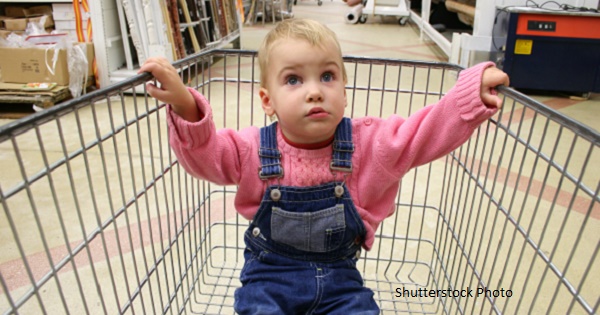|

Individuality: The Dangers
Our Consumer Culture and Confused Parenting Priorities
By Laura Schuerwegen
Our society provides children with confusing messages. While we want them to be responsible, we withhold trust and responsibility. We want them to be autonomous, but we withhold attachment when they need it. We end up with needy consumers.
Western society values autonomy and individualism over anything else. Each person strives to be their unique self – in most cases, their unique consumerist self.
In order to create these unique, autonomous creatures, strategies are employed from birth onward. We put our tiny newborn in a crib, preferably in a room of her own. We let them cry and avoid human interaction as much as possible, so theywon’t be “spoiled.” We have designed a variety of contraptions to have them self-soothe and self-care as soon as possible, and also to imprint them with brand consciousness before they can walk. Sleeping through the night is important for infants, we think, and we read books to get it done – preferably quickly and swiftly.
We have huge parental competitions over whose child gets to walk first. We smugly announce that our child knows fifty words already (that’s at least five more than your child!).
We prepare them for autonomy by cutting the umbilical cord seconds after birth, by dropping them at daycare at three months of age. Then there is preschool and prep school and after school in order to avoid – at any cost – them becoming a “momma’s child.” We drill him to sit still and shut up and learn to listen…so they will become responsible. But we don’t give them any responsibilities. Indeed, they are not to be trusted.
Children are seen as vicious, manipulative creatures. They’ll – gasp – do anything to get your attention. And they’re worthless: They can’t do anything, and therefore don’t deserve any rights or respect.
So we tie their shoelaces until they’re twelve, we spoon feed them mush until they walk and talk and write. They have to be told over and over to eat their veggies and finish their plates, because we assume they don’t know what’s good for themselves.
We don’t trust them with scissors, or glass, or cutlery, or fluids, or pastes. We make things especially for them: tiny plastic plates and plastic cups, and fake scissors, paint, cutlery, clay. And that’s because we don’t trust them with the real thing and because, well, it’s big business.
We don’t trust them to walk to school on their own or go somewhere with their friends. We don’t allow them to choose their own studies once they go to college or university because they’ll certainly choose something dumb and end up living under a bridge.
They are not allowed a say in society until they turn eighteen. They are not allowed to partake of human life until they reach “adulthood” as defined by either government or parents. They have to “live by the rules” until they move out of the parental house.
There is a definite confusion of priorities when it comes to infants. We tend to their wants to avoid frustration: When they want that little toy, we’ll give it to them. When they squeak because they aren’t comfortable on their belly, we’ll roll them over. But we ignore their needs, because we think that fulfilling their needs would make them needy. The result is children who are confused, frustrated, easily ticked off, and everything except autonomous.
They attempt to reach full potential by going through a factory-like schooling system that delivers them all – all these individuals – in batches.
They will spend their lives searching for their uniqueness by filling the void in their life by buying the big brother brands of the ones they grew up with, since they were the only form of closeness they knew growing up. And because success in life is only defined by how well you can cope on your own and how many expensive things you can collect.
And when you scratch the surface of this quest for autonomy, you’ll find that everything we do to achieve it is just a way to adhere to the mainstream, our striving to follow the current. To fulfill the deep desire to belong to the herd that we so profoundly longed for in childhood.
Humanity is not a species of uniqueness and solitude. It is a species that has evolved through community. The things that do make us unique, compared to other species – our huge brain and communication skills – developed because we lived in large communities and worked together towards common goals.
So I can’t help but wonder how this came to be. Was it the detachment? Did it create needy children which generated the distrust? Children whose needs aren’t met will become needy and try to find any possible way to get attention, to get those urgent needs fulfilled.
Or is it all an ingenious consumerist scam, concocted by brands to create delusions in parents that will make them buy more stuff and push them to raise perfect little consumerists?
Or is it kyriarchy that aimed to establish a supply system of conformists?
After studying communication sciences in Brussels, Laura Schuerwegen escaped Western life to tend to her family in Sub-Saharan Africa. She writes at Authentic Parenting www.authenticparenting.info.
Copyright © Life Media
Privacy Policy
  
  

|

